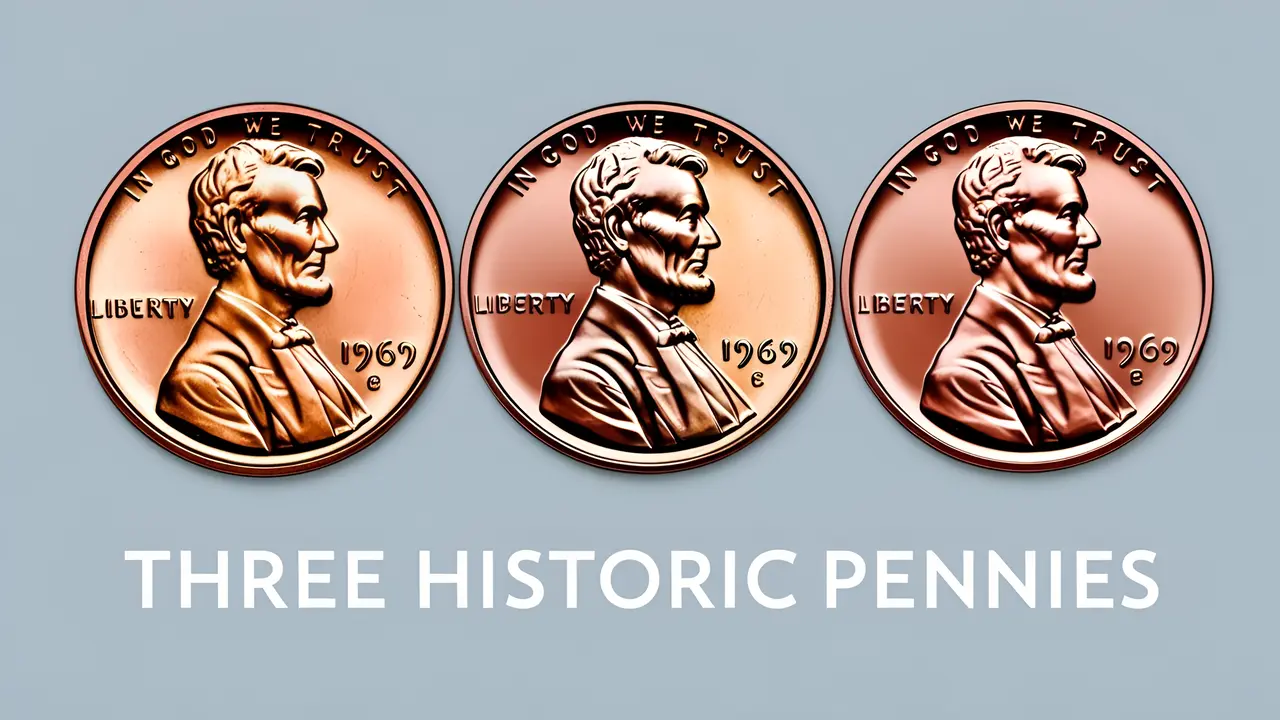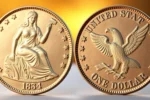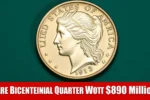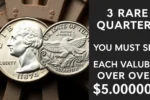Ever wondered if the loose change in your pocket could hold extraordinary value? While often overlooked, certain pennies have skyrocketed in worth due to historical quirks, minting errors, or their sheer rarity. These tiny coins have captivated collectors and fetched jaw-dropping prices at auctions.
Curious to know what makes these coins so extraordinary? Let’s dive into eight of the most valuable rare pennies, explore their fascinating backstories, and learn how to identify them. By the end of this guide, you might be inspired to sift through your piggy bank for hidden treasures.
Quick Guide: Top Rare Pennies and Their Value
| Penny | Reason for Value | Top Value | Key Features |
|---|---|---|---|
| 1943 Copper Penny | Accidental use of copper during WWII | Up to $300,000 | Copper color; doesn’t stick to magnets |
| 1914-D Wheat Penny | Limited mintage, heavily circulated | Up to $100,000 | “D” mint mark under the year |
| 1909-S VDB Penny | First Lincoln penny with designer initials | Over $50,000 | “VDB” initials on reverse near base |
| 1955 Doubled Die Penny | Striking error causing text doubling | Over $1,000 (circulated) | Doubling in text and numbers |
| 1972 Doubled Die Penny | Similar error to the 1955 version | Thousands of dollars | Doubling noticeable in letters |
| 1969-S Doubled Die Penny | Extremely rare doubling error | Tens of thousands | Doubling on text and date |
| 1922 No D Wheat Penny | Missing mint mark due to worn die | Over $10,000 | No “D” mint mark |
| 1944 Steel Penny | Mistaken use of steel planchets | Tens of thousands | Magnetic; lacks copper color |
1. The Legendary 1943 Copper Penny
During World War II, the U.S. Mint swapped copper for steel in penny production to conserve resources for the war effort. However, a few copper planchets were accidentally used, resulting in the ultra-rare 1943 Copper Penny.
Why It’s Special:
This error coin is incredibly scarce, with only a handful known to exist. Its unique origin story makes it a crown jewel for coin collectors.
How to Identify It:
- Made of copper (not steel).
- Doesn’t stick to magnets, unlike steel coins.
Value: Pristine examples have sold for as much as $300,000 at auctions.
The Coveted 1914-D Wheat Penny
With only 1.2 million minted, the 1914-D Wheat Penny is one of the rarest in circulation, especially in excellent condition. Most were heavily used, making well-preserved pieces highly desirable.
Key Features:
- Bears the “D” mint mark beneath the year.
- Part of the Wheat Penny series, with wheat stalks on the reverse.
Value: Top-condition coins can fetch up to $100,000.
1909-S VDB Penny: The First Lincoln Penny
This iconic coin marked the debut of the Lincoln penny. Designed by Victor D. Brenner, it features his initials, “VDB,” on the reverse—a detail later removed after public criticism.
Why It’s Valuable:
Only 484,000 were minted, making it an exceptionally rare find.
How to Spot It:
- Look for the “S” mint mark on the front.
- The initials “VDB” are engraved at the base of the wheat stalks on the reverse.
Value: In excellent condition, these coins are worth over $50,000.
Doubled Die Pennies: Striking Errors with Big Payoffs
Doubled die pennies are minting errors where the design is struck twice, creating a noticeable doubling effect. These coins are rare and highly collectible.
Notable Examples:
- 1955 Doubled Die Penny: Famous for pronounced doubling on the text and numbers. Even circulated versions command over $1,000.
- 1972 Doubled Die Penny: Doubling is noticeable on the lettering.
- 1969-S Doubled Die Penny: A rare gem with significant doubling on the obverse.
Value: Depending on condition, these coins can sell for thousands of dollars.
The Rare 1922 No D Wheat Penny
In 1922, pennies were exclusively minted at the Denver Mint, which typically leaves a “D” mint mark. However, some coins lacked this mark due to worn dies, making them a rarity.



